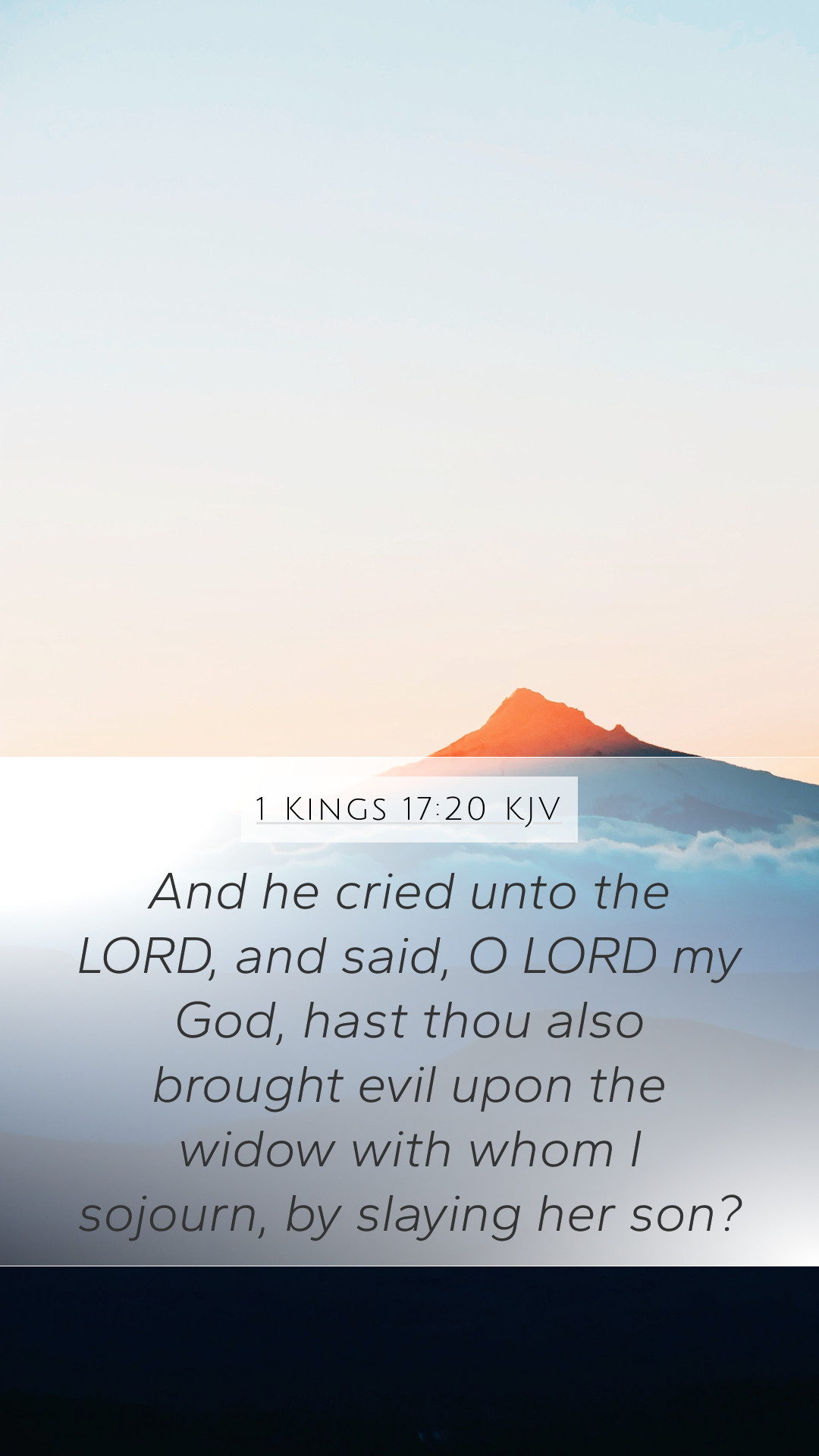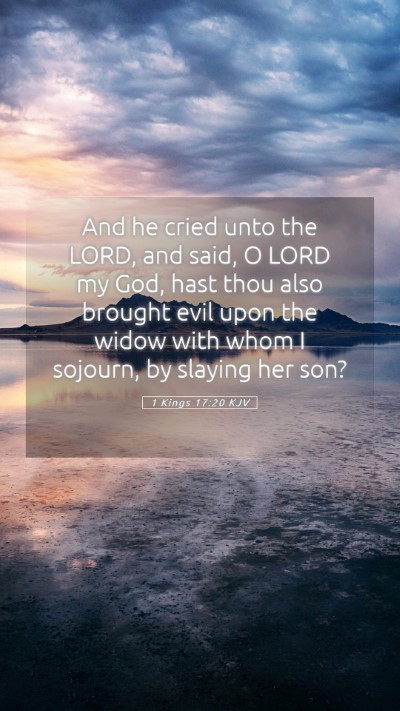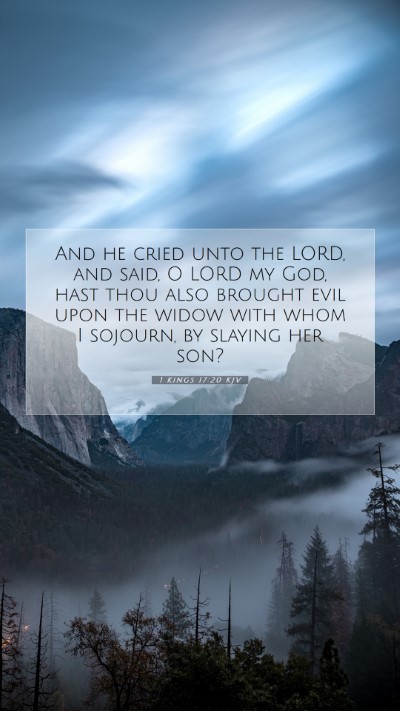Understanding 1 Kings 17:20: Biblical Exegesis and Interpretation
1 Kings 17:20 reads: "And he cried unto the LORD, and said, O LORD my God, hast thou also brought evil upon the widow with whom I sojourn, by slaying her son?"
This poignant moment in Scripture highlights Elijah's deep emotional turmoil and raises important questions about suffering and divine purpose.
Here we will explore the meanings, interpretations, and explanations of this verse, leveraging insights from esteemed public domain commentaries,
like those by Matthew Henry, Albert Barnes, and Adam Clarke.
Biblical Context of 1 Kings 17:20
To fully grasp the weight of this verse, it is essential to understand the surrounding context.
Elijah, the prophet, is depicted in a time of drought and famine in Israel, having been instructed by God to dwell with a widow in Zarephath.
This widow sustains him with her meager resources, a miracle facilitated by God. However, tragedy strikes when her son falls ill and dies,
prompting Elijah's anguished cry to God.
Insights from Commentaries
-
Matthew Henry:
Henry emphasizes the personal relationship and intercession Elijah has with God. He questions why the widow,
who has been kind and faithful, is now punished with the loss of her son. This illustrates the human struggle with faith amidst adversity.
-
Albert Barnes:
Barnes discusses the significance of Elijah's plea as an expression of both grief and confusion. He interprets
this as a moment where Elijah wrestles with the seeming injustice of God’s actions, showcasing the tension
between divine sovereignty and human suffering.
-
Adam Clarke:
Clarke notes the cultural context of the time, where the death of a child was seen as a significant misfortune,
often perceived as a divine curse. He highlights how Elijah's lament reflects a profound sense of responsibility
and empathy towards the widow.
Thematic Analysis
This verse raises several themes worth exploring: the nature of divine providence, the role of human intermediaries,
and the profound questions regarding suffering and justice. Elijah's plea embodies the tension between faith and despair:
-
Divine Providence:
The narrative invites readers to contemplate how God's plans encompass both mercy and judgment.
Elijah’s interaction reminds believers that God often works through human lives, weaving heartache with hope.
-
Human Responsibility:
Elijah’s cries signify a call to intercessory prayer, emphasizing the prophet's role as a mediator between
God and the people during desperate times. His leadership exemplifies the prophetic duty to bear the burdens of others.
-
Understanding Suffering:
This verse compels individuals to address the discomfort surrounding suffering and divine silence.
It reassures that expressing questions to God is a valid part of faith.
Application to Daily Life
The contemporary relevance of 1 Kings 17:20 cannot be overstated.
It resonates with those facing overwhelming grief or confusion regarding faith and suffering.
Here are ways to apply the insights:
-
Engaging in Honest Prayer:
Like Elijah, believers are encouraged to candidly express their emotions and doubts in prayer,
trusting that God values their struggles and questions.
-
Supporting Others in Suffering:
This passage inspires individuals to be compassionate towards those who are suffering,
understanding the profound emotional weight of loss.
-
Understanding God’s Sovereignty:
It provides a framework for wrestling with life’s complexities while affirming an unwavering faith in God’s ultimate purpose.
Cross References
The themes and inquiries raised in 1 Kings 17:20 are also evident in several other Scriptures.
Here are some pertinent cross-references that can enhance understanding:
- 2 Kings 4:18-37: The account of Elisha raising the Shunammite’s son is an echo of Elijah’s experience.
- Job 30:20: Job’s cries reflect similar feelings of abandonment in times of suffering.
- John 11:21-32: The mourning of Mary and Martha after Lazarus’ death portrays human grief and questioning God’s timing.
Conclusion
1 Kings 17:20 serves as a profound reminder of the human experience of suffering and the complexity of faith
in the face of tragic loss. By exploring the rich commentary and thematic significance, believers can navigate
their own struggles with a deeper understanding of Scripture.
This comprehensive study invites readers to seek the divine in moments of despair while grasping the tender
relationship between the prophet and God—an enduring lesson for all who engage in Bible study.


